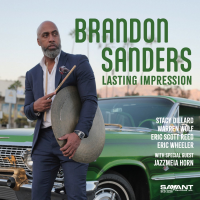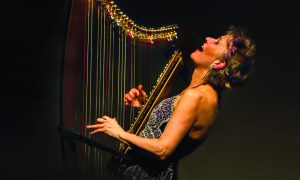
The New Music Seminar has a history of breaking bands. In 1984, just months before the release of her debut album, Tom Silverman's industry-leading summit introduced its attendees to a young, ambitious performer named Madonna. In 1989, NMS visitors had to plug their ears as they listened to a set by a Seattle trio called Nirvana.
This year's New Music Seminar was a little different, with two traditional showcases book-ending the finals of an Ourstage competition called Artist on the Verge. Over 500 bands were selected, and after a series of cuts, three finalists--Hotspur, Yonas, and Comic Book Heroes--performed short sets on Tuesday night at Santos Party House. NMS attendees were then asked to vote, via text message, for their favorite.
The following day, the three hopefuls were the subject of a panel entitled Radical Differentiation, in which Billboard editor Bill Werde attempted to coax advice out of Stevie Van Zandt, Justin Smith (a.k.a. Just Blaze), live performance guru Tom Jackson and fashion marketing heavy Kelly Cutrone. Beginning broadly with the question of how to stand out in music's crowded field, Werde then shepherded most of the panel (Cutrone, who did occasionally manage to offer some solid advice, mostly stuck to talking about the primacy of marketing) to the question of how the aforementioned bands could improve their live performances. Here are some take-aways:
Take Control
Though each artist made very different kinds of music, the panel noted that all three made very similar mistakes. The impression conveyed by all three acts was that they were trying to deliver amped up versions of their recordings and credible facsimiles of rock star performances; the artists were serving their songs, instead of the other way around. “The song's in control, not you," Tom Jackson observed, over and over again, while analyzing the performances.
This is a problem because, as Jackson and others noted, pop performance is about creating moments of connection, not about assaulting the audience with bigger, louder versions of songs. Doing that requires knowing which parts of your songs people most identify with, then emphasizing them. “There are moments in your show that are dying to come out," Jackson told Comic Book Heroes, “you just won't let them."
There are lots of different ways of doing this, of course, and they will vary depending on the kind of music you play, but in general it's important to deliver those moments as openly and confidently as possible, and also to use them to give your set a sense of dynamics and emotional range. Playing every note in every song with maximum vigor and energy might seem like a good idea, but it's like “Chinese water torture--the pressure never changes.
“Do all of your songs sound the same?" Jackson asked Hotspur at one point. As they considered that question, he continued: “Then why do they all look the same?"
Imagine It On Stage
Early on in the panel, Van Zandt described the phases of personal artistic development like so: “Arrangement, performance, composition, recording."
Too often, Van Zandt lamented, people skip over the process of intimately connecting with what artists before them did. This is a mistake, mainly because all artists are ultimately just the sum of their influences, and the better you know them, the better you know yourself. “You are who you like," Van Zandt said. And, he added, “You're only as cool as who you steal from."
The more time one spends with an idol's music, the easier it is to consider songs as things that have to exist both on stage and as recordings. Just Blaze told the contestants that he and many of his peers, including Jay-Z, understand that every song must have moments that an audience will want to participate in. To Blaze and Jigga, these moments do not evolve organically. They put them there, and know that a live set needs many of them.
At the end of Wednesday's schedule, a representative from OurStage announced that Hotspur had won their contest, which meant they had won close to $70,000 worth of prizes. But the advice they got on stage was probably just as valuable over the long haul.
























